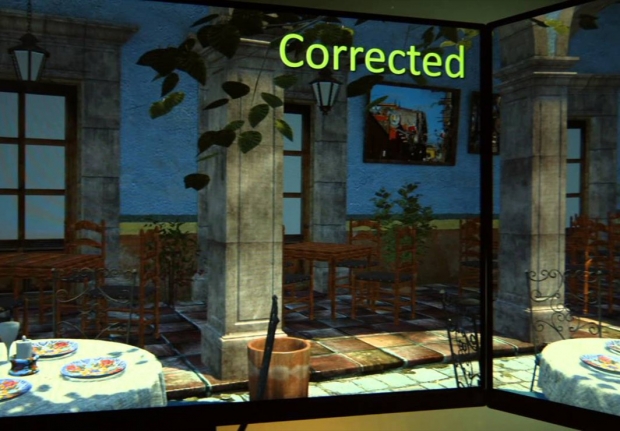Dubbed Simultaneous Multi-projection, it is designed to enhance VR rendering performance and will soon come to Unreal Engine and Unity.
An Nvidia statement said that the ‘Simultaneous Multi-projection’ which has the same acronym as a Scottish Member of Parliament allows Pascal-based GPUs to render multiple views from the same origin point with just one geometry pass.
This renders multiple views which would have required a pass for each projection. SMP can manage up to 16 views can be rendered in a single pass (or up to 32 projections in the case of rendering from two viewpoints for VR).
This makes it rather useful for VR because it can do what Nvidia calls ‘Lens Matched Shading’ and avoid rendering pixels which end up being discarded in the final view sent to the display in the VR headset after the distortion process.
Nvidia claims that SMP can yield “a 3x VR graphics performance improvement over previous generation GPUs”.
But Nvidia’s next goal will be to get developers to build the tech into VR games. Take-up is pretty thin on the ground at the moment, but when it is integrated into the Unreal Engine and Unity things should take off. They are the biggest game engines used to create VR content.
SMP is supported by all of Nvidia’s 10-series GPUs, including the newly announced GTX 1060 although it is not clear at this point when we will see it.




